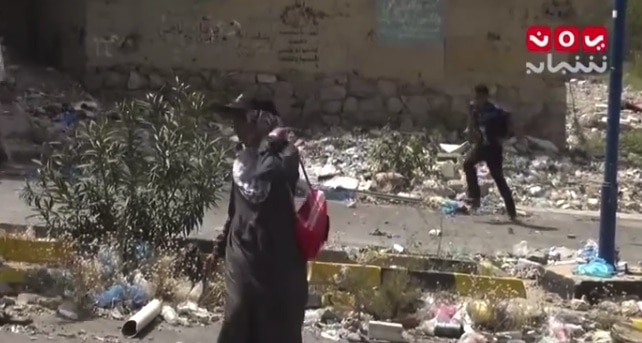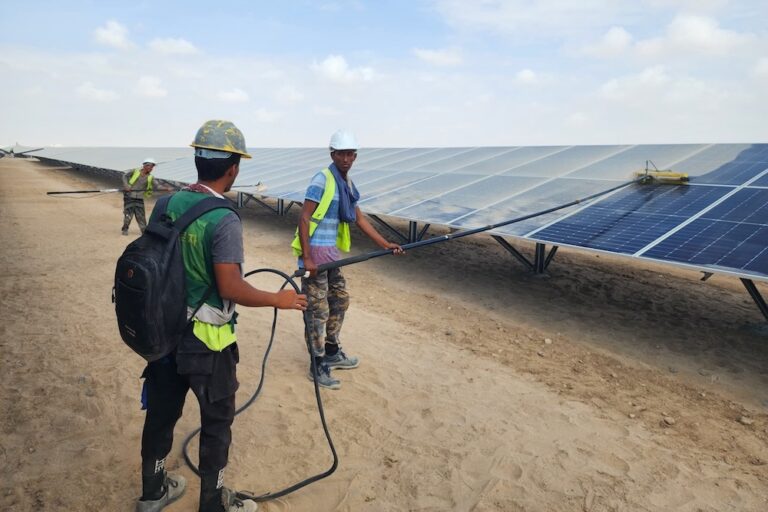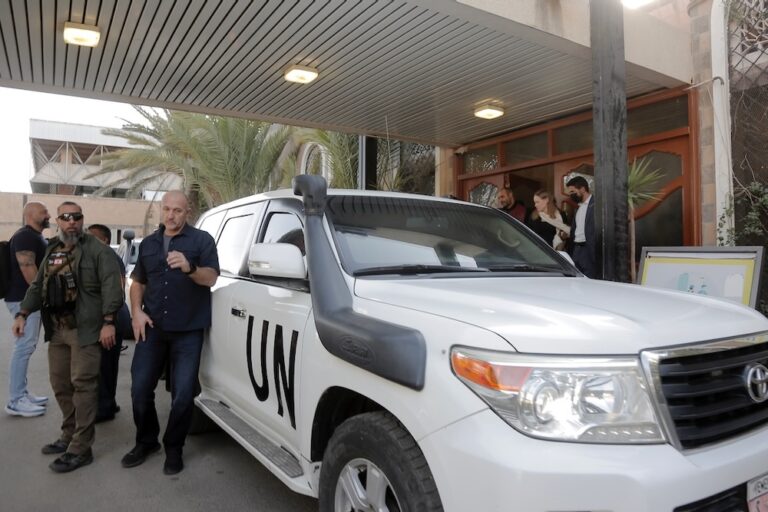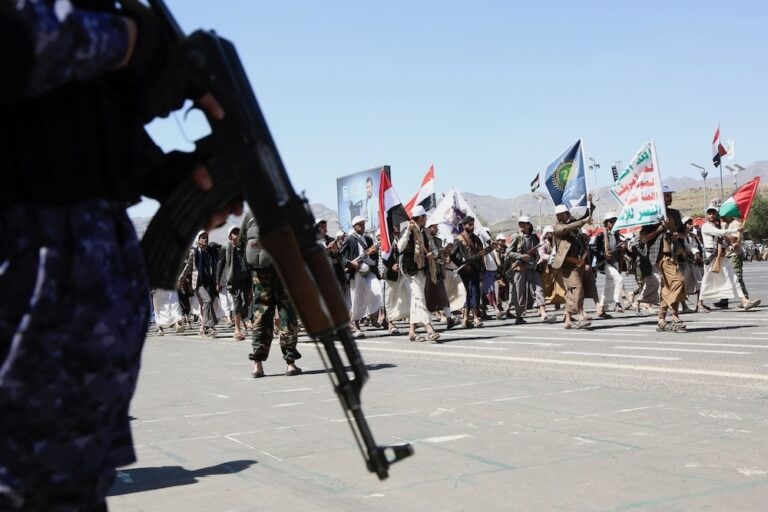A video reporter for state-owned Yemen TV, Shaibani was killed while covering the fighting in Taiz along with other journalists.
This statement was originally published on rsf.org on 18 February 2016.
Reporters Without Borders (RSF) condemns TV journalist Ahmed Al-Shaibani’s targeted murder by a sniper yesterday in the southwestern city of Taiz and calls for independent investigations into the crimes committed by both sides in the war in Yemen.
A video reporter for state-owned Yemen TV, Shaibani was killed while covering the fighting in Taiz along with other journalists. A sniper shot him in the head as he and other reporters crossed a road in a western district of the city to inspect the damage inflicted on a factory by Houthi rebel missiles.
Shaibani was the first journalist to be killed in Taiz since the start of the war. An Al-Jazeera video shows him being shot as he runs across the road. He died on the spot. RSF condemns his death.
“We urge journalists and media outlets to take great care when reporting in the field and we remind the parties to the conflict that they must answer for their actions towards journalists and other civilians in accordance with international law,” said Alexandra El Khazen, the head of RSF’s Middle East desk.
“We call for independent investigations into all the crimes against reporters in Yemen, both the crimes by the Arab coalition and those by the Houthis.”
Al-Jazeera correspondent Hamdi Al-Bokari was kidnapped in Taiz on 18 January along with fellow reporter Abdelaziz Al-Sabri and their driver Mounir Al-Soubaie. After they were freed ten days later, Bokari reported on social networks that they had been kidnapped by Houthi rebels.
Shaibani is the third journalist to be killed in Yemen since the start of the year. At least eight journalists and media workers were killed in the course of their work last year in Yemen.
Although the Houthi rebels are responsible for most of the violence against media personnel, at least five journalists and media workers have been killed in air strikes by the Saudi-led coalition since the start of its intervention in the Yemeni conflict in March 2015.
In a statement published by the official Saudi news agency SPA, the Arab coalition nonetheless announced in late January that it was creating an “independent” commission to investigate allegations of possible abuses against civilians that had been reported by UN experts.
Yemen is ranked 168th out of 180 countries in RSF’s 2015 press freedom index.



